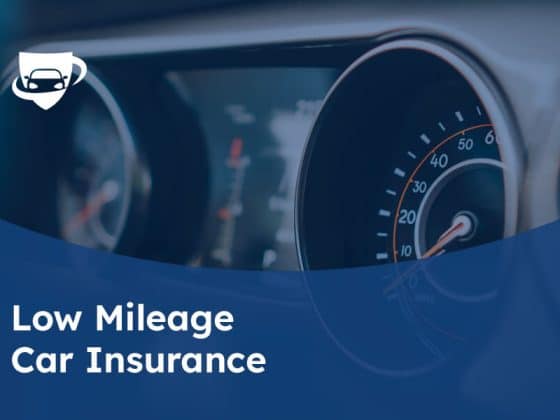What Is an Auto Insurance Score?
Put simply, this is a number—usually ranging between 300 and 900—that predicts the likelihood of whether or not you’ll end up making an insurance claim. The lower it is, the stronger the possibility you’ll file a claim.
Even though it does partially rely on your credit score, the two scores are not the same. Most insurers and consulting companies take these factors into consideration when determining your car insurance score:
- your overall profile, as well as your driving and claims record
- your credit rating
This score is not an officially recognized insurance metric, and each company has its method of calculating it. Nevertheless, it is directly linked to your premium. The higher you score, the less you’ll pay.
Keep in mind that when certain insurers also use the term “credit-based auto insurance score,” your score is based entirely on your credit rating.
Car Insurance vs. Credit Score
A credit score is a number that represents your ability to repay the money you have borrowed. It’s based on your annual income, previous late payments, job history, and other items.
Most auto insurance companies use your credit score when calculating premiums. For instance, major insurers, such as Progressive and Nationwide, openly admit on their websites that they rely on the credit score when determining car insurance rates.
So, instead of looking at your credit report, an insurer will often acquire the information from reputable credit repositories such as TransUnion, Equifax, and Experian.
In general, insurance companies employ this practice because there is a strong statistical correlation between a low credit score and the chances of you filing a claim.
However, in this case, it’s not a credit-based insurance score only, but there are many factors impacting this insurance score.
Specifically, insurance companies use additional data, such as your age, driving experience, the model of your car, etc. — in order to finalize your quote.
Keep in mind that there’s no official method for every company to use while calculating their premiums. It’s also worth noting that basing rates on one’s credit score is prohibited in several states, some of them being Massachusetts, Hawaii, and California.
What Factors Can Affect the Insurance Scoring?
Underwriting is mainly based on concluding statistical data on previous losses. This means that insurance companies compile and update a list of factors that determine whether or not an applicant will be a high-risk driver.
They then check your profile to see where you fit when applying for coverage. As far as your credit rating is concerned, the following items may affect your auto insurance score when you get a quote:
- payment history, especially if there are late payments and delinquencies
- outstanding debt — i.e., how much debt you have at the moment
- the length of your credit history
- any new credit applications
- what kinds of credit you currently have
When insurance companies take your driving history and profile into account, they’ll look at the following items when making an auto insurance score calculation:
- previous violations, such as speeding tickets, at-fault, or DUI citations (The US is one of the leading countries worldwide for driving under the influence)
- your claims history
- your age and driving experience
- the vehicle you drive and how many miles you drive
- your zip code
- gaps in your insurance history
As we have seen, several factors impact insurance scoring. While some of them are within your control, like your driving history, others, like your age, unfortunately, aren’t.
How to Check Insurance Score
You can find out your insurance score by requesting that information from LexisNexis. Moreover, you can ask your insurance provider directly, as these companies all have specific methods of calculating it.
Furthermore, if the company doesn’t give you a direct answer, ask that it provides you with a reference number you can use if you contact LexisNexis.
In general, if you have a good credit score and pay your bills in due time, rest assured that you’ll have a score reflecting that.
What Is a Good Car Insurance Score?
Generally speaking, this will depend on the analytics company that does the actual scoring. Nonetheless, it is safe to say that anything above 750 will get you an affordable car insurance rate.
In addition, the score that the Fair Isaac Corporation (FICO) assigns ranges from 300 to 850. Be that as it may, keep in mind that every insurer interprets an insurance score scale differently, and these scores are not official.
Still, there’s a significant chance that if your score is high, you will be able to buy cheap car insurance. Namely, the results above 700 are always considered good, while any rating higher than 800 is excellent.
In addition to the already mentioned ones, we’d like to add one more. Yes, we’re talking about the TransUnion insurance score.
This one is based on your credit rating, and it goes from 200 to 997, with anything over 770 representing very good results. You can get it for free on CreditKarma’s website.
Finally, if ChoicePoint compiled the rating, the score would range from 300 to 997. The good ratings usually start at 750, while anything above 800 indicates you’ll get low premiums.
How to Improve Your Insurance Score Level
If you have a lower score than you’d like, there are several things you can do, or stop doing, to improve them. Since your insurance rating is based on two parameters — your credit score and your driving profile — improving each requires a different approach.
Your credit rating can be improved by doing the following:
- Avoid opening new credit card accounts.
- Dispute any errors in your credit report.
- Do not make new purchases using credit card loans.
- Pay off any past debt.
Additionally, if you want to belong to the best car insurance rating tiers, you should try to accomplish the following:
- Get additional driving training.
- Choose a safe, inexpensive, and reliable car model.
- Try to avoid getting any driving violations.
- Consider moving to a less expensive zip code.
- Drive less often, or at least prevent traffic jams.
All in all, if your insurance score is high, the insurer will give you better ratings for your risk level in states where these scores are rating factors.
Why Does My Auto Insurance Score Matter?
In general, every insurer has a unique strategy and will assess specific parameters differently. But in the end, if there’s strong evidence that certain factors might raise the chances of you making a claim, every company will take notice.
Otherwise, having a high claims expense to a low premium ratio would put them out of business. That is why insurance scores are a firm indicator of what premiums you’re likely to pay.
In addition to getting your score estimates, getting quotes from multiple insurers is the most direct way to figure out your premium. Each company has a different market approach, meaning prices can vary substantially.
Besides getting as many quotes as possible, it’s also smart to check auto insurance reviews. By reading them, you’ll see how each auto insurance company determines credit score in crucial departments such as financial strength and customer service.
Conclusion
The majority of online scores are based on your credit rating. Then again, when you get a quote, insurance companies consider other factors too.
That’s why it is even more prudent to get quotes from as many insurers as possible instead of worrying about where you stand on the insurance score chart.
While there’s no universally accepted way to determine your score, any estimate you can get from the major agencies will be a reliable indicator of how much you’ll need to pay for car insurance.
That’s why it’s beneficial to do a quick online check. With this in mind, you can learn first-hand how much a driver with your profile needs to pay.
People Also Ask
What is a good auto insurance score?
All in all, anything above 750 is widely accepted as a good insurance score, no matter which company did the rating. Namely, TransUnion insurance verifies that anything over 770 represents a very good result, while that number for ChoicePoint is 750.
Additionally, anything above 800 is considered an excellent result, meaning you will be able to buy quite affordable car insurance coverage.
How is your insurance score calculated?
No two insurance companies use the same method to make these calculations. Nonetheless, the majority of them will look at your credit reports to determine your rates.
Additionally, they’ll look at direct underwriting factors, which have an obvious link to your likelihood of making a claim.
These include your driving record, a lapse in insurance, the make and model of your car, your location, and your age and driving experience.
What is the difference between insurance score and credit score?
Even though the two may seem the same, that’s not the case. For instance, a credit score is used to let lenders know how likely you are to pay back your debt. At the same time, an insurance score shows providers how likely you are to have a claim.
However, your credit report does affect your insurance score.
What is included in an insurance score?
No two insurance companies use the same method to make these calculations. Nonetheless, the majority of them will look into several factors.
Overall, five factors that can determine your credit-based auto insurance score are:
- outstanding debt (how much debt you have)
- credit mix (types of credit you have)
- payment history (how well you have made payments on your outstanding debt so far)
- credit history length (how long you’ve had a line of credit)
- pursuit of new credit (whether you have submitted an application for new lines of credit recently)



